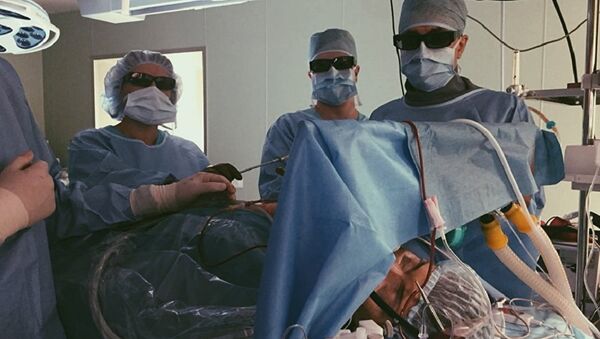In a press release, the Center reported that the operation was performed on a 24-year old male patient suffering from a pronounced deficiency with his mitral valve (the part of the heart which allows blood to flow from one chamber of the heart to another). Due to the incomplete closure of the valves, part of the blood from the patient's left ventricle would return to the atrium during the contractions of the heart's ventricles, thus damaging the mitral valve.
Cardiologists from the Center's department of genetic heart defects successfully performed an operation to repair the mitral valve with minimal surgical trauma. "Access to the heart was achieved without dissection of the sternum, using small punctures. Throughout the operation, the surgeon watched his actions through a monitor," the press release explained.
The Center emphasized that the use of the new endoscopic surgery technique significantly reduced many of the risks associated with traditional heart surgeries, including blood loss and postoperative septic complications, as well as postoperative pain. Recovery time is also faster, with the 23-year-old patient discharged from the hospital after seven days, and allowed to resume physical activity in three weeks.
Previously, similar noninvasive surgeries have been performed in only a handful of cardiac surgery centers in countries including Germany, Austria and Belgium.


